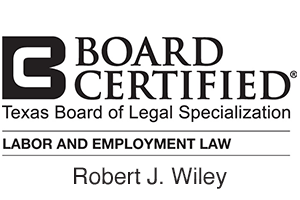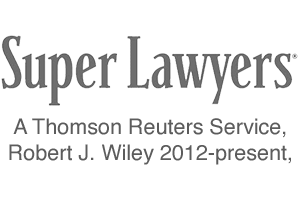in Austin, Texas
Fair Labor Standards Act
What is the Fair Labor Standards Act?
The Fair Labor Standards Act, originally passed in 1938, is one of the most important laws governing employer-employee relationships in the United States. The FLSA was the first federal law to establish many basic worker protections which are now largely taken for granted. These protections include a guaranteed minimum wage, access to extra pay when working overtime, provisions against employing children, and protections for employed teens. At the state level, the FLSA is supplemented by the Texas Payday Law, which establishes penalties for employers who do not pay their employees in full and on time. Austin Employment Lawyers, P.C.’s experienced Austin employment lawyers can provide you with counsel and representation if your employer has violated the FLSA.
Minimum Wage Under the FLSA
The FLSA is most well known for guaranteeing minimum wage and overtime pay to covered workers. The federal minimum wage as guaranteed by the FLSA is $7.25 per hour. Individual states can mandate that employers pay a higher minimum wage, but not a lower wage; Texas uses the federal $7.25/hour rate as its minimum wage. Employees who work overtime (defined as any number of hours in excess of the normal 40-hour workweek during any seven-day period) are entitled to receive time and a half for those overtime hours.
Who Is Covered by the FLSA?
Most employees are covered by the Fair Labor Standards Act. However, workers who are protected by other federal laws, such as railroad workers, are not protected by the FLSA. Movie theater employees and some types of agricultural workers are also not covered. Additionally, certain jobs are considered “exempt” from the FLSA rules around overtime and can be paid a salary instead of an hourly wage. These jobs include executives who oversee two or more employees as well as professional occupations such as doctors or lawyers if certain criteria are met.
Rules Governing Teens in the Workplace
The FLSA also establishes other rules for employers to follow, including different rules for workers under 18. Under the FLSA, children under 14 cannot work for an employer in any situation, teens aged 14 or 15 may work but not in dangerous jobs or during school hours, and teens aged 16 or 17 may work any number of hours but may not work dangerous jobs. Once an employee turns 18, there are no longer any restrictions on the type of employment they may seek or the number of hours they may work under the FLSA, but other restrictions may apply due to other laws (for example, the Occupational Safety and Health Act).
Rules Governing Breaks and Accommodations
Contrary to popular belief, the FLSA does not mandate any particular scheme for breaks, lunches, benefits, or payroll practices. It does, however, stipulate that any break of 20 minutes or less must be paid. You cannot be forced to clock out for breaks of less than 30 minutes, and if you are asked to clock out when taking a break, you must be fully relieved of your duties. The FLSA does apply special break regulations to especially dangerous jobs. It also requires employers to give nonexempt nursing mothers a reasonable break to nurse their infants (when infants are allowed in the workplace) during the first year after the baby’s birth. The FLSA also does not require employers to provide extra pay for any unusual hours, such as weekend or holiday pay. Some individual employers may provide it as an incentive, but neither federal law nor Texas state law mandate it.
How to Protect Your Rights Under the FLSA
If you are a nonexempt employee, your employer is obligated to follow the rules and restrictions laid out in the Fair Labor Standards Act. If they incorrectly compensate you (including paycheck deductions, pay less than the minimum wage, or lack of pay for overtime), then you are entitled to file a claim for your lost income over the last two years. If the violation is willful, you are allowed to claim lost income from the last three years instead. The court may also decide that you are entitled to additional liquidated damages on top of the lost income; if you receive liquidated damages, your award doubles. For violations that do not involve lost income, the time limit is the same: you have two years to file suit, but if you can show that the company’s violation was intentional, it extends to three years. Despite this, it is important that you contact an attorney as soon as possible if you believe your employer has violated the FLSA. The Austin employment lawyers at Austin Employment Lawyers, P.C. can help you make the best case possible and fight to protect your rights. If you believe your employer is not complying with fair labor practices, or believe you have a claim, you can contact us by filling out our intake form or calling our office at (512) 271-5527.







